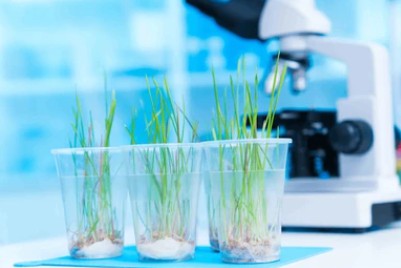Plant morphology is the study of the physical form and external structure of plants. This is often considered to be different from plant anatomy, which is the study of the internal structure of plants, especially at the microscopic level. Plant morphology has four research directions: comparative morphology, which describes morphological similarities and differences from a comparative point of view; phylogeography, which studies the phylogeny and origin of plants; experimental morphology, which reveals patterns of change in morphology through experiments; and morphogenesis, which describes the influence of internal and external factors on the formation of plant bodies. Morphological characterization of plants is usually documented according to the standards and terminology of botanical morphology. Items recorded include flowering density, heaviness, flowering period, flower size, color, fragrance, number of stamens and pistils, developmental status, leaf color, leaf size, leaf shape, stem color, stem thickness, fruit size, and color, seed color, number of seeds in a single fruit, and seed weight in thousand grains, etc.

With the progress of plant taxonomy, the identification of plant traits is becoming more and more detailed and standardized. We have developed a complete system of plant trait identification. Lifeasible offers comprehensive plant morphological characterization solutions to analyze the physical form and external structure of plants. In addition to observational and quantitative characterization of plant morphology, we offer anatomical, sporulation, cytogenetic, physiological, biochemical, pathological, and serological methods to characterize plants. We also provide anatomical, sporological, cytogenetic, physiological, biochemical, pathological, and serological methods for the identification of plant microstructure, internal structure, chromosomes, physiological, and biochemical traits, in particular, karyotyping, sporulation, isoenzyme analysis, leaf oil identification, etc.
We provide the following solutions for plant morphological characterization, including but not limited to:
Comparative analysis of external morphological features of major organs of plants is a research tool to determine their botanical taxonomic status and affinities. Our morphologists can examine the structures of many plants of the same or different species and then compare and formulate ideas about similarities.
The trophic structure of vascular plants includes not only the root system but also the branching system consisting of stems and leaves. Reproductive structures are more diverse and often specific to groups of plants, such as flowers and seeds, fern sleds, and moss capsules. We offer specialized analysis of the trophic as well as reproductive structures of plants.
We allow the study of plant structures at a range of scales. The most minor scales are ultrastructure (general structural features of cells that can only be seen with the help of an electron microscope) and cytology (study of cells using a light microscope). The most enormous scale is the study of plant growth habits, i.e., the overall structure of the plant.
We offer services for analyzing plant developmental patterns (i.e., the process of structural origination and maturation of plants as they grow). Our experts are dedicated to studying this process, its causes, and its consequences.
Lifeasible aims to analyze the shape and structure of the whole plant, organs, tissues, cells, organelles, and molecules. Plant morphological trait characterization helps to better screen plant traits and understand the nature of life. Please contact us for the best solutions to identify plant morphological traits.